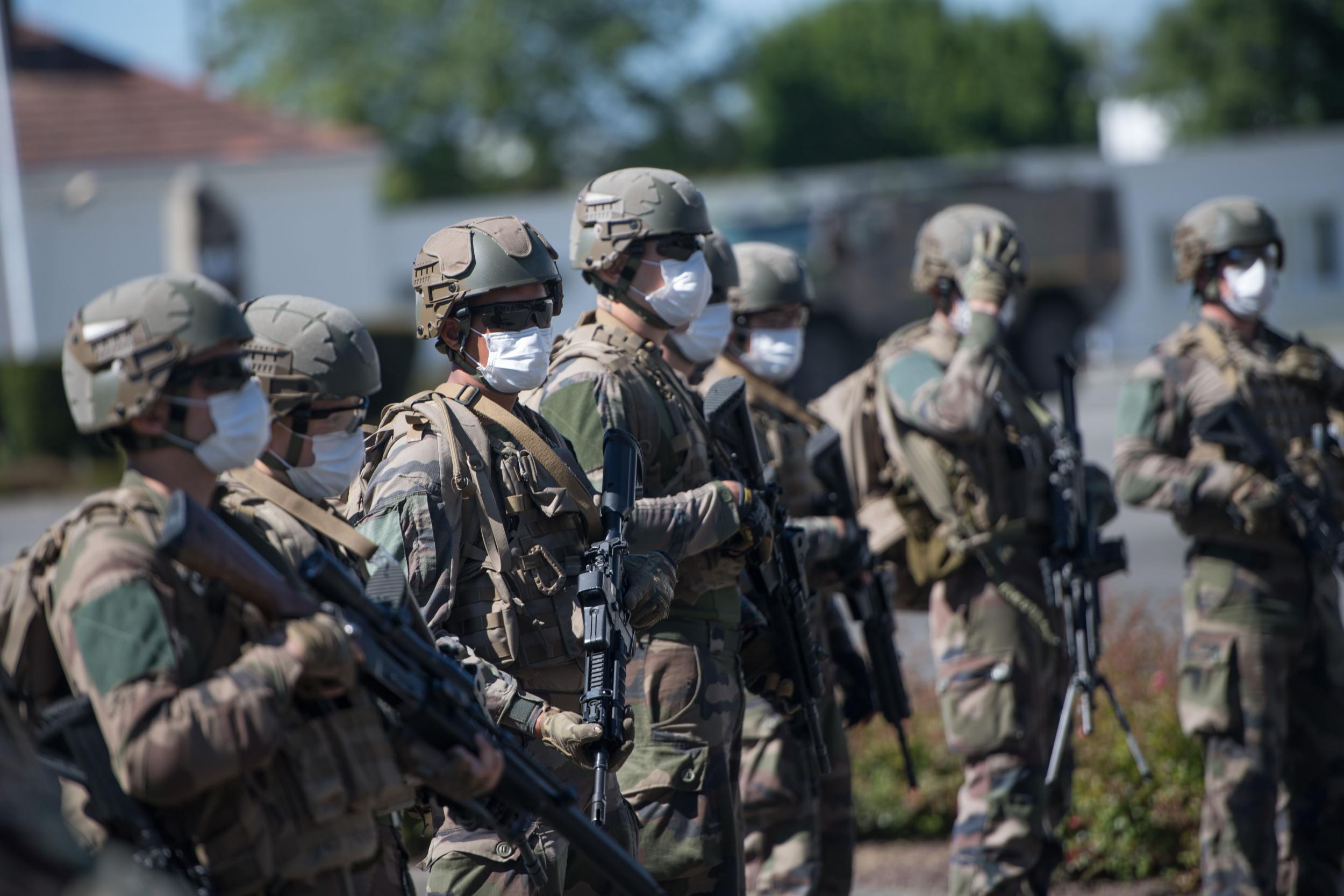Trump claims US ‘never really fought to win’ during Afghanistan war
Since war began after 9/11, more than 2,300 US troops have died
Your support helps us to tell the story
From reproductive rights to climate change to Big Tech, The Independent is on the ground when the story is developing. Whether it's investigating the financials of Elon Musk's pro-Trump PAC or producing our latest documentary, 'The A Word', which shines a light on the American women fighting for reproductive rights, we know how important it is to parse out the facts from the messaging.
At such a critical moment in US history, we need reporters on the ground. Your donation allows us to keep sending journalists to speak to both sides of the story.
The Independent is trusted by Americans across the entire political spectrum. And unlike many other quality news outlets, we choose not to lock Americans out of our reporting and analysis with paywalls. We believe quality journalism should be available to everyone, paid for by those who can afford it.
Your support makes all the difference.Donald Trump on Monday declared that the United States had “never really fought to win” in Afghanistan, except early in the nearly two-decade-long war, making a sweeping statement about military efforts as thousands of US troops continue to serve, and sometimes die, in counterinsurgent operations there.
In a series of tweets, the president pushed back against a 17 May Wall Street Journal editorial cautioning against abrupt decisions regarding Afghanistan, where US officials are seeking to facilitate a peace deal between Taliban militants and the Afghan government ahead of a planned reduction in US forces.
“Could someone please explain to them that we have been there for 19 years,” Trump wrote. “The Taliban is mixed about even wanting us out. They make a fortune $$$ out of having us stay, and except at the beginning, we never really fought to win.”
“We are more of a police force than the mighty military that we are, especially now as rebuilt. No, I am not acting impulsively!” he said.
Since the war began in the wake of the 11 September 2001 attacks, more than three-quarters of a million Americans have deployed to Afghanistan, and more than 2,300 US troops have died. During Barack Obama’s troop surge, about 100,000 military personnel were arrayed across the country, fighting to win remote areas from Taliban control.
Over the past year, the military mission has focused on pummelling militants with airstrikes and supporting Afghan forces in an effort to induce the Taliban to embrace political talks outlined in a 29 February US-Taliban deal. That deal halted US attacks on the Taliban and outlined a path towards an American departure.
Officials have declined to give an exact number for the US force, which serves there as part of a Nato-led coalition, but said the number is being brought down to 8,600 this spring as an initial step in the recent agreement.
While officials have acknowledged that the war has been locked in an extended stalemate and that many hard-won battlefield gains have not been sustained, Trump’s commentary was unusual for a commander in chief. Typically, presidents have heaped praise on military efforts no matter their outcome.
At other moments, Trump has also lauded the military effort in Afghanistan, including during a surprise Thanksgiving visit last year. Speaking to troops at a US airfield outside Kabul, Trump praised troops who had deployed to “defend liberty” since the start of the war and those who “continue to serve heroically to stamp out terrorism and to eviscerate the enemies of civilisation”.
It remains unclear how quickly further reductions will follow if peace talks, already delayed, do not begin or progress. Trump, who has spoken about his desire to end the war since he was a presidential candidate, has repeatedly expressed frustration about the conflict and the resources it has involved.
“You can only hold someone’s hand for so long,” he said in March, referring to Afghanistan.
Richard Fontaine, who served as foreign policy adviser to the late Republican senator John McCain and is now CEO of the Centre for a New American Security, said that “anybody who said we didn’t fight to win would have a hard time explaining Obama’s surge when the military unleashed very serious operations again the Taliban”.
The Taliban, meanwhile, has continued to demonstrate its resilience, conducting attacks that have resulted in a surge in Afghan casualties this spring. So far in 2020, four US troops have died in hostile action. Last year, almost 20 died.

US military officials have said that even if a peace deal can be reached, a significant counterterrorism threat will remain given the presence of al-Qaida and Islamic State militants.
In its editorial, the Wall Street Journal appeared to voice concern about a sudden withdrawal order.
“The Taliban know that President Trump is eager to withdraw all US troops from the country, preferably before Election Day in November, so he can claim a diplomatic victory,” the editorial read. “But that gives the Taliban an incentive to bide their time in the hope of goading Mr Trump to do something impulsive.”
A Pentagon spokesman referred questions about the president’s tweet to the White House. The White House did not provide a comment.
The Washington Post

Join our commenting forum
Join thought-provoking conversations, follow other Independent readers and see their replies
Comments